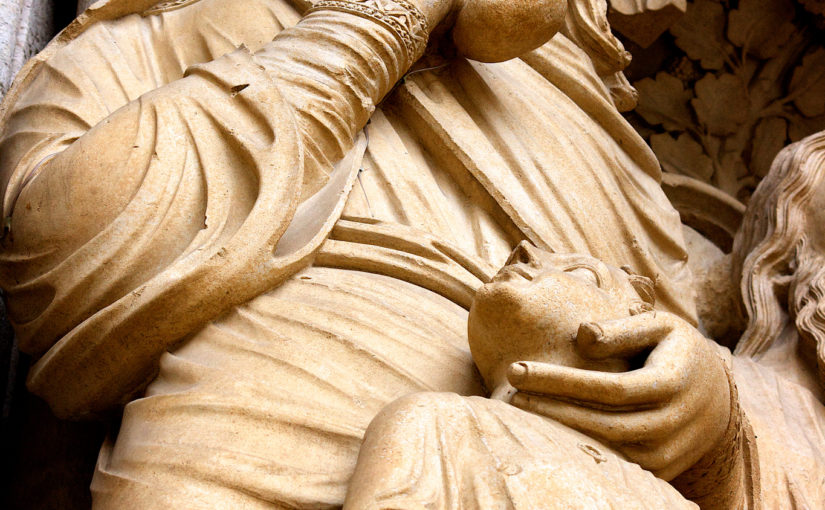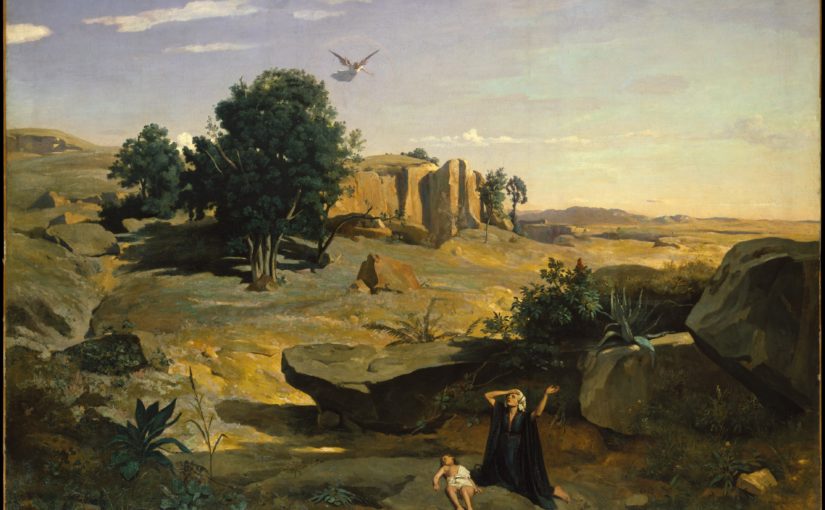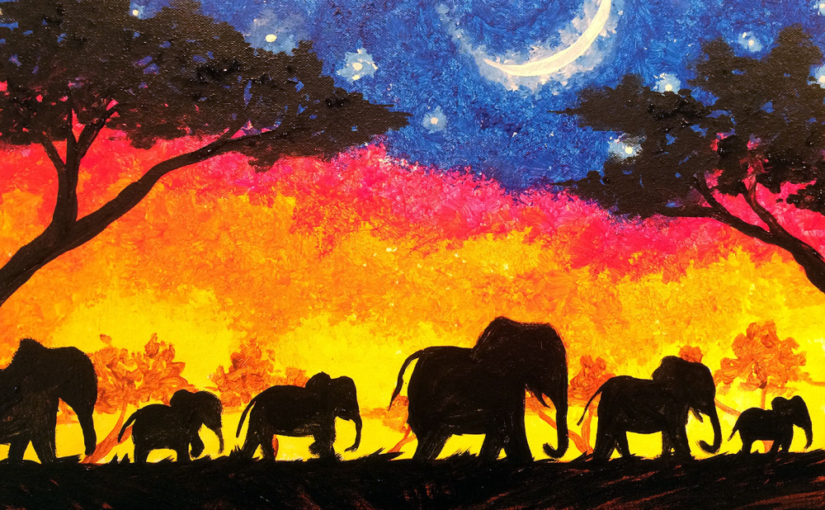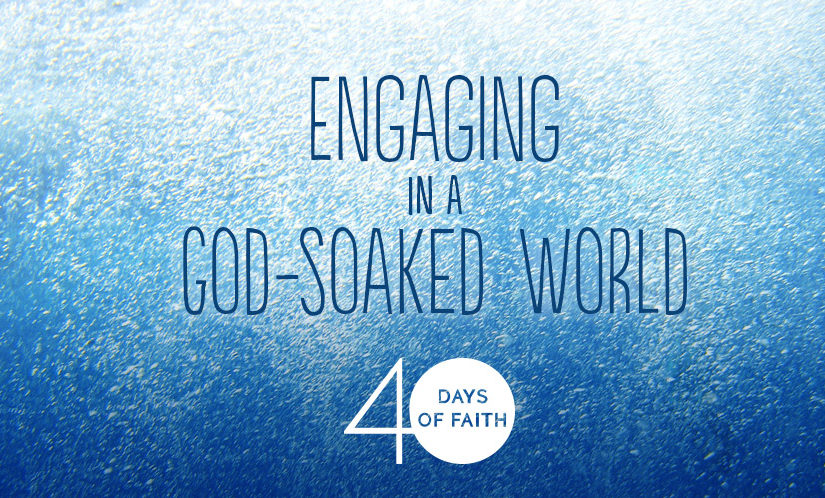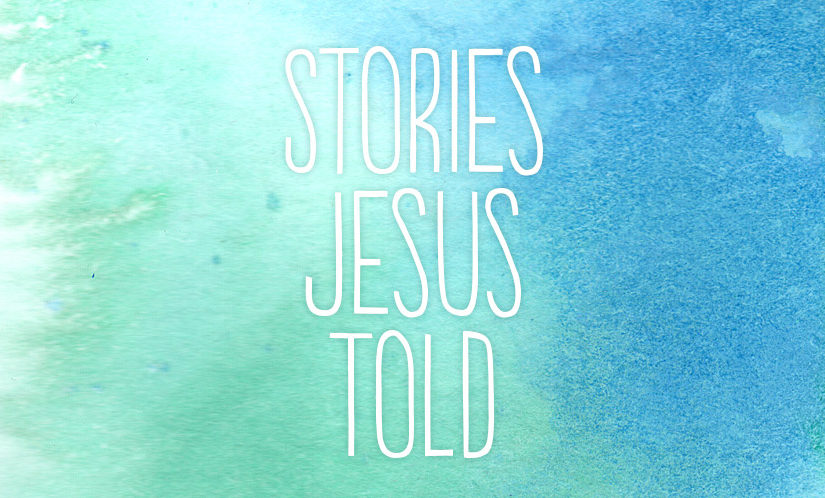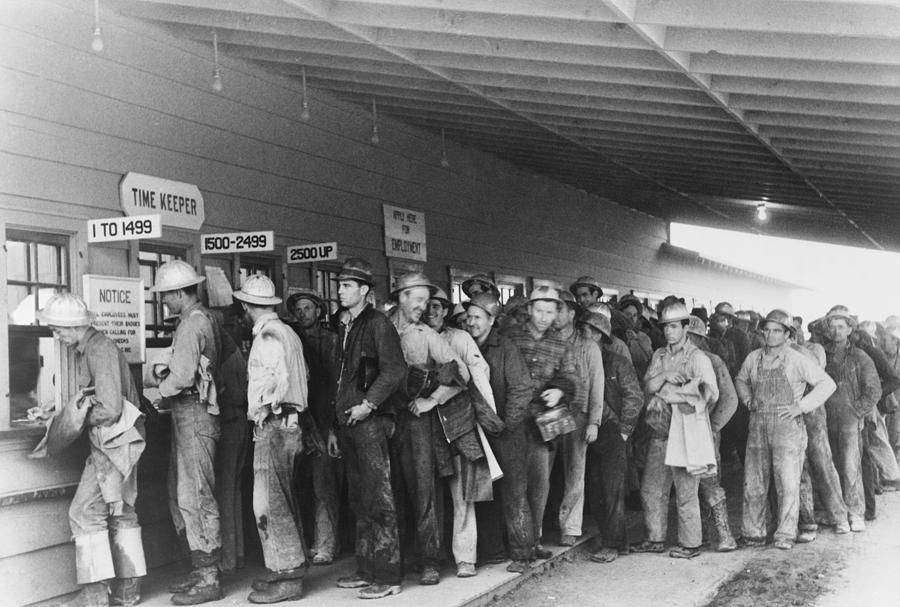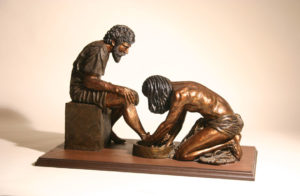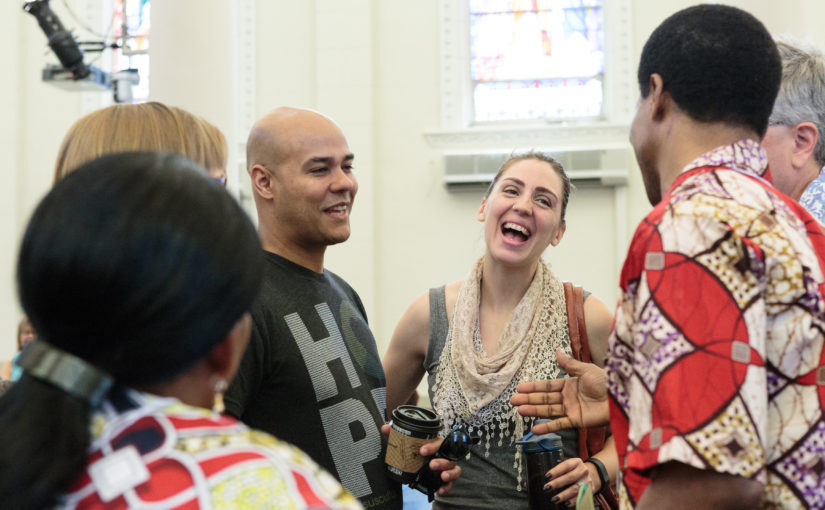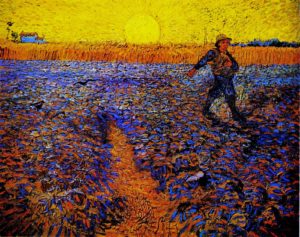Wednesday, March 8 – Genesis 22:1-19
After these things God tested Abraham. He said to him, “Abraham!” And he said, “Here I am.” 2 He said, “Take your son, your only son Isaac, whom you love, and go to the land of Moriah, and offer him there as a burnt offering on one of the mountains that I shall show you.” 3 So Abraham rose early in the morning, saddled his donkey, and took two of his young men with him, and his son Isaac; he cut the wood for the burnt offering, and set out and went to the place in the distance that God had shown him. 4 On the third day Abraham looked up and saw the place far away. 5 Then Abraham said to his young men, “Stay here with the donkey; the boy and I will go over there; we will worship, and then we will come back to you.” 6 Abraham took the wood of the burnt offering and laid it on his son Isaac, and he himself carried the fire and the knife. So the two of them walked on together. 7 Isaac said to his father Abraham, “Father!” And he said, “Here I am, my son.” He said, “The fire and the wood are here, but where is the lamb for a burnt offering?” 8 Abraham said, “God himself will provide the lamb for a burnt offering, my son.” So the two of them walked on together.
9 When they came to the place that God had shown him, Abraham built an altar there and laid the wood in order. He bound his son Isaac, and laid him on the altar, on top of the wood. 10 Then Abraham reached out his hand and took the knife to kill his son. 11 But the angel of the Lord called to him from heaven, and said, “Abraham, Abraham!” And he said, “Here I am.” 12 He said, “Do not lay your hand on the boy or do anything to him; for now I know that you fear God, since you have not withheld your son, your only son, from me.” 13 And Abraham looked up and saw a ram, caught in a thicket by its horns. Abraham went and took the ram and offered it up as a burnt offering instead of his son. 14 So Abraham called that place “The Lord will provide”; as it is said to this day, “On the mount of the Lord it shall be provided.”
15 The angel of the Lord called to Abraham a second time from heaven, 16 and said, “By myself I have sworn, says the Lord: Because you have done this, and have not withheld your son, your only son, 17 I will indeed bless you, and I will make your offspring as numerous as the stars of heaven and as the sand that is on the seashore. And your offspring shall possess the gate of their enemies, 18 and by your offspring shall all the nations of the earth gain blessing for themselves, because you have obeyed my voice.” 19 So Abraham returned to his young men, and they arose and went together to Beer-sheba; and Abraham lived at Beer-sheba.
Points of Interest:
- A number of things have happened since we left off with Abram, Sarai, and their dysfunctional household. In response to their ongoing spiritual life and sense of destiny, they have both altered their names somewhat, and are now called Abraham and Sarah. Hagar’s child Ishmael is all grown up, and Abraham and Sarah have had a miracle baby of their own, a son they named Isaac.
- I once studied this passage with a rabbi who found dark humor in the dialogue. When Abraham tells Isaac, “God will provide the lamb, my son,” we hear him at first simply addressing his teeage son. This rabbi joked that Abraham might have been indicating that Isaac is in fact the lamb God provided. That would have put a damper on their hiking conversation! This same rabbi speculated that Abraham returned later to a different city because he couldn’t bear to see his wife afterwards. That would be an awkward conversation – “Honey, what did you and our boy do today?”
- In all seriousness, this is a harrowing story. In the Jewish tradition, it’s referred to as the “binding of Isaac.” This is a story about a man who thinks God’s telling him to kill his only son and who gets as close as tying him down to a homemade altar before stopping. We’ll present two very different interpretations of this passage, and then run with the second interpretation for the sake of our own efforts to engage in a God-soaked world.
- The most traditional interpretation of this passage takes it at face value. Abraham has left his home and inheritance based on a word from God, waited over ten years for the promised child to come, and then God tests his faith one more time. In this understanding, Abraham senses God speaking accurately. Then in faith that God will bring Isaac back to life, or provide him with a substitute heir, or make it work out in some other way, he brings Isaac and a pile of wood up to a mountaintop. Very close to the murder, Abraham has a strong impulse to stop and attributes this impulse to a messenger from God, or perhaps he physically sees a vision of a person telling him to stop. He then sees a lamb caught in a bush and realizes God still wants a sacrifice, but will take an animal sacrifice instead. So he unties his son, kills the lamb, praises God, senses God’s praise for him and reaffirming of God’s promise, then heads back down the mountain, and calls it a day. A particularly Christian spin on this interpretation is to see the lamb in the bush as a foreshadowing of the eventual death of Jesus, who has been called – amongst other things – the Lamb of God, who takes away the sin of the world.
- This traditional interpretation has some strengths but also a couple of major problems. It’s a pretty ugly and – for the Bible – very unusual view of God. Ancient Near Eastern residents understood their Canaanite fertility gods to demand child sacrifice to ensure further children and good harvests. But the Old Testament strongly condemns this practice and makes it clear that the God of Abraham, who people eventually believe to be the one, true God of the world, is not like this. Also, this scene is only mentioned twice in the New Testament, and never as a symbol for Jesus’ death.
- Since the Middle Ages, numerous other readings of this passage have been proposed. Here is one. Abraham may have thought that God was asking for a child sacrifice. After all, he’d experienced God speaking to him at sites of fertility-god worship, other gods in his region expected this, and perhaps his family god would require this sacrifice as well. Under this interpretation, Abraham is mistaken in his original sense of God speaking to him, but then accurately discerns God telling him to stop. In this understanding of the passage, Abraham is led by God’s spirit to a truer, healthier view of God – God who will bless Abraham and his descendants and would never demand the death of a human. Abraham is able to pass that knowledge on to his descendants, and child sacrifice is never again proposed by Abraham’s descendants, except when they disobey God to worship the false, destructive gods of neighboring cultures.
Spiritual Exercise: Name something you used to think about God that you no longer think is healthy or accurate. Ask God to continue to give you a true and accurate belief about and experience of God.
Prayer: Pray that your church will help you and many others develop a true picture of God. As you and others seek to hear God’s voice during this season, pray that you’ll listen well and discern wisely, sorting out false pictures of god from the true and good God revealed in the person of Jesus.


